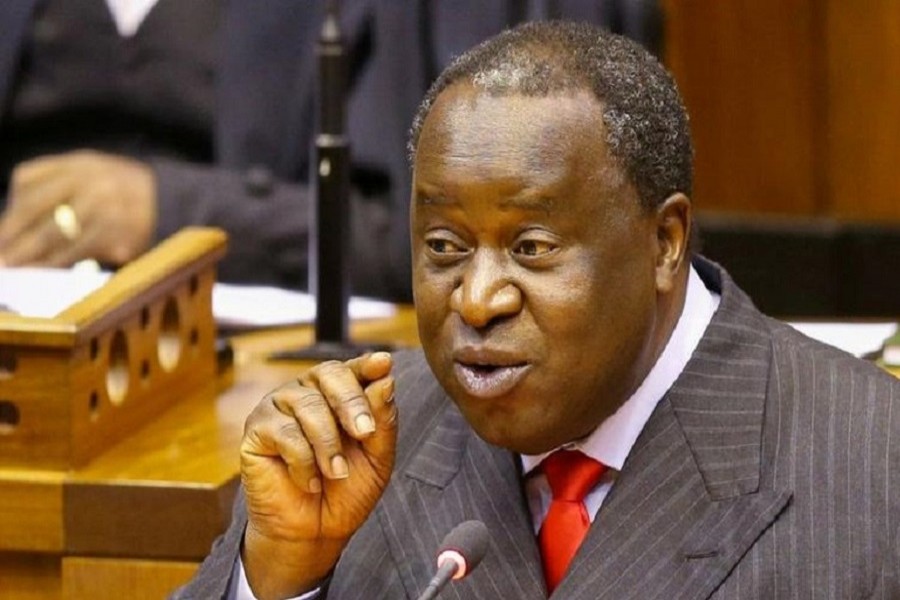South Africa’s budget deficit will be the highest in the post-apartheid era, and the finance minister warned in his emergency budget speech on Wednesday that debt had become a hippo eating their children’s inheritance.
Public debt is projected to be more than three quarters of gross domestic product, as the coronavirus crisis stifles the economy, the Treasury said on Wednesday.
Finance Minister Tito Mboweni warned that future generations will pay dearly unless South Africa takes tough action to get in control of its borrowing.
“Debt is our weakness. We have accumulated far too much debt; this downturn will add more,” Mboweni said.
“Our Herculean task is to close the mouth of the hippopotamus. It is eating our children’s inheritance. We need to stop it now,” he added.
Africa’s most advanced economy was in recession before the COVID-19 outbreak ravaged the economy, and the lockdown that followed late in March has put further strain on businesses and consumers.
This week the number of cases in South Africa crossed 100,000 in total, with more than 2,100 deaths, the highest on the continent.
To cushion the economic blow of the pandemic on the economy, President Cyril Ramaphosa announced a 500 billion rand ($28.86 billion) relief package in April, equivalent to 10 per cent of South Africa’s GDP.
In a supplementary budget in response to the coronavirus crisis, the Treasury projected the main budget deficit would widen to 14.6 per cent of GDP in the current 2020/21 fiscal year - the highest in since South Africa threw off the shackles of its globally isolated apartheid rule in 1994.
The consolidated budget deficit, which also includes spending financed from revenues raised by provinces, social security funds and public entities, was seen hitting 15.7 per cent of GDP.
Meanwhile, the Treasury projected that gross government debt would rise to 81.8 per cent of GDP in 2020/21 from 63.5 per cent last year.
The rand extended losses on the day in response to the budget.
The economy is seen contracting 7.2 per cent this year, after the strict nationwide lockdown severely curtailed production across key sectors such as mining and retail.
Some lockdown restrictions have since been eased to allow key sectors to resume operations.
South Africa has approached the International Monetary Fund (IMF), World Bank, New Development Bank of the BRICS and African Development Bank to source funding to contribute to the rescue package.
The government has also repriotised previously planned spending to help fight the virus, with the supplementary budget making provision for 145 billion rand for immediate COVID-19 interventions.


